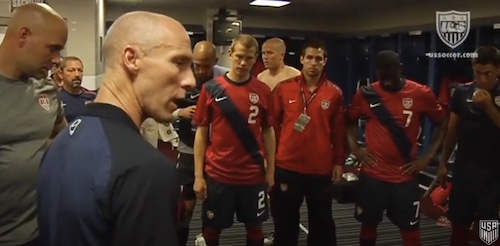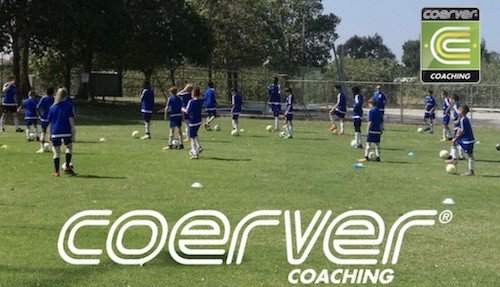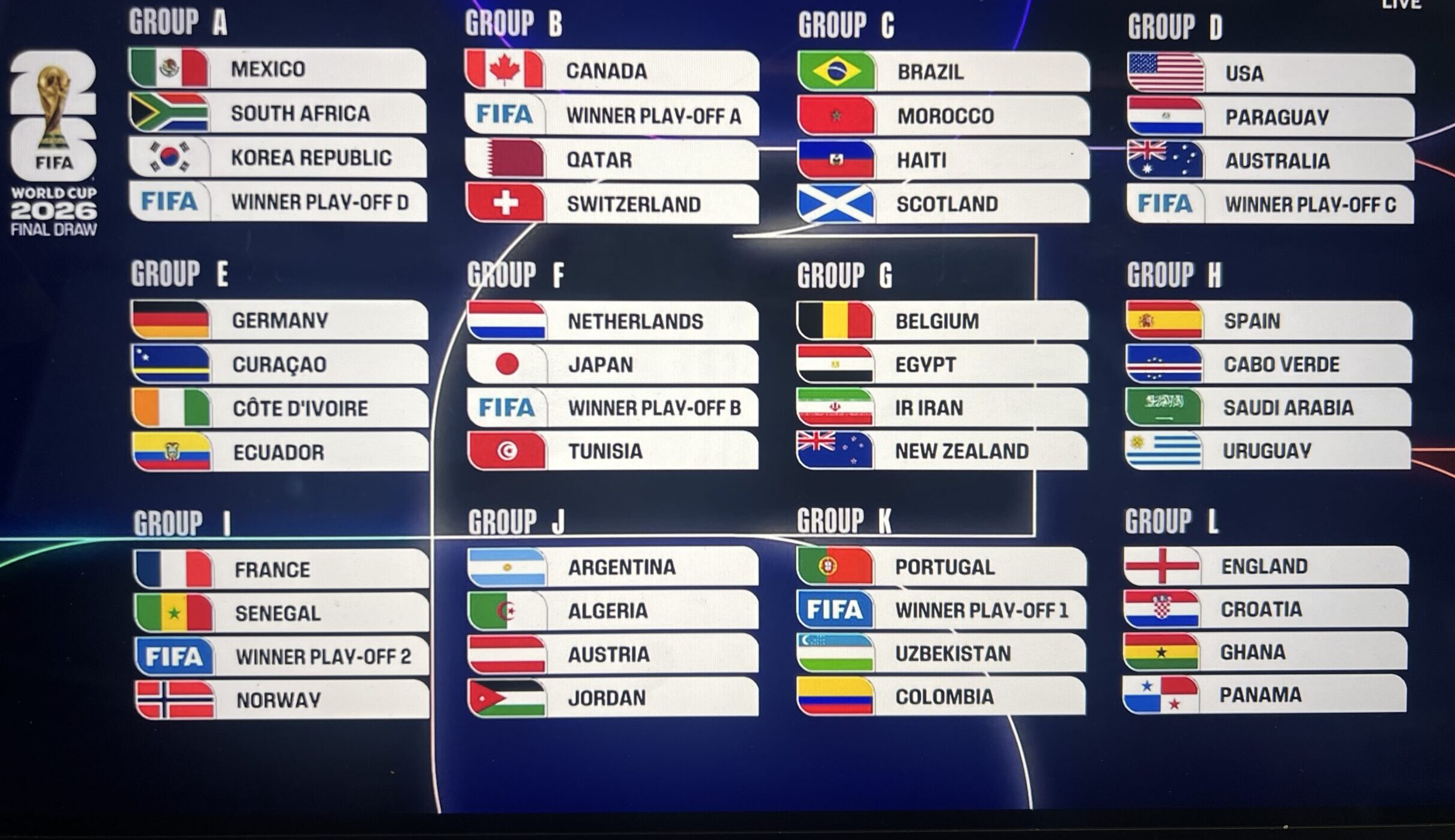Soccer coaches role: What is the role of the soccer coach? While great soccer players might often shine through whatever the environment, whoever happens to manage the team, the role of the soccer coach is essential to player development when coaching young players. Soccer coaches are key in setting out the right platform for players to develop skills on the ball that they can perform under pressure.
Bob Bradley delivers his final words to the team before the USA the field against Spain. Top image credit goes to US Soccer.
Let’s learn from some of the top soccer coaches / managers in the world about what exactly a soccer coaches role is:
Throughout the world soccer clubs deem the role of the coach as extremely important. Clubs spend a lot of time identifying good coaches and bringing them to their club. Professional clubs will go world wide in search of coaches who they believe are the most successful. This can be shown through the amount of foreign coaches who work in countries not of their origin.
But what makes a good soccer coach? What makes a good soccer coach in terms of developing young players? It’s not just about winning games, especially in youth soccer, it’s about instilling confidence and developing technically sharp players.
Different soccer coaches believe different things – yes, every coach has their opinion on how the game should be played and taught to you players. Here are just a few ideas from top soccer coaches in the game today and what they think are soccer coaches roles and responsibilities:
Jurgen Klopp manager of Liverpool
Here’s Klopp talking about dealing with losing games: “You have to feel a defeat. You cannot say ‘I don’t care, it’s not important.’ If I was allowed to say sh*t I would say sh*t but I’m not allowed! It was important and we lost, so that feels not too good. You always have to strike back. We can say all of these things, but you know you can fall down and then you have to stand up. That’s the truth, but it’s completely normal – only silly idiots stay on the floor and wait for the next defeat. Of course we will strike back – 100%. We struck back today in the game.”
One Barcelona celebrating goals: “I show my team very often Barcelona but not the way they play. Just the way they celebrate goals. Goal no 5768 in the last few weeks and they go ‘Yeeeess’ like they never scored a goal. This is what I love about football. That’s what you have to feel all the time. Until you die. And then everything is OK.”
One Barcelona’s passing game: “It is not my sport. I don’t like winning with 80% [possession]. Sorry that is not enough for me. Fighting football, not serenity football, that is what I like. What we call in German ‘English’ — rainy day, heavy pitch, 5-5, everybody is dirty in the face and goes home and cannot play for weeks after.”
Bayern Munich manager Carlo Ancelotti
“When things are going well, there is a risk of relaxation; when things are going badly, obviously there is a loss of confidence. The coach must always keep a good balance in that sense, lifting the confidence levels particularly when things don’t seem to be working.”
“The important thing, though, is to find a good player-coach relationship and to carry forward your beliefs, managing to convince the players of the merit of your ideas.”
Jurgen Klinsmann (U.S. National Teach Coach) Klinsmann talks about how he talks to players and gets help from other coaches:
“We coaches have to learn how to deal with that: How do I get to each player the best – with a talk, with video analysis? And what sort of tone? We need our own coaches for that. The sports psychologist coaches me too.”
Klinsmann goes on to talk about how he eases young players into the game:
“Some of the younger players do need protecting as they are new at this level. That is why I do not play them all the time as they need to be bedded in slowly.”
Phillip Troussier* (former national team manager of Nigeria, Japan and South Africa) has stated this about the soccer coaches role:
“The first condition of a coach is to dream- you need passion to build your team. I have an image of what I want to produce, transmit”.
He goes on to say: “I believe that 60% of the result comes from the relationship between the coach and the players”.
Johan Cruyff former manager of Barcelona:
“In my teams, the goalie is the first attacker, and the striker is the first defender.”
“I let all youth teams play the same way, like the first team. I always put the emphasis on learning. Sometimes I had the suspicion the youth coaches were more concerned with winning. They cared more about their own reputation.”
“I cared only about the interest of the club. When a player with talent couldn’t defend I put him in defense so he could learn, but that could cost a point. But I didn’t care, I was busy developing the player.”
Jose Mourinho manager at Manchester United
“I give a lot of instruction in training. It’s difficult for me to do the same in matches, so I need guys on the pitch to read the game, to understand what we want.”
“I know one of my best qualities is to read the game for my players, is to read the opponent, is to identify every detail about the opponent.”
Pep Guardiola manager of Manchester City
“Everything starts with the ball and finish with the ball. Sometimes we forget that this is a game with 11 v 11, WITH ONE BALL, and we try to keep this ball, we try to play with the ball, we try to make everything with the ball. ”
“The fundamentals, what I want, which is to take the ball, try to play as offensive as possible and dominate the game through the ball, is the same. I grew up with that; I was a player with that idea, and I am a coach with that idea.”
Former manager of Manchester United Alex Ferguson** also saw the role of the coach as essential. He has stated,
“When I first started coaching, my main job as a coach was to improve my players, shape my team, balance my team and get them to play football which I enjoyed”.
Furthermore, he has stated that:
“The key role of the coach is to make a decision- a decision about selection, a decision about recruitment. Many people know the answers, but not everyone is prepared to make the tough decision”.
So the role of the soccer coach is clearly important in the eyes of top coaches around the world. However, these coaches are generally dealing with adults and thus coaches have to ask themselves if their role is different when dealing with children. In this week’s chosen show on www.soccer-expert.com we look at the role of the coach. If you are just starting out as a coach or you want to learn more establishing your role is essential. Coaches have to look at the issues of winning and development. This issue has dominated much discussion in youth development.
In England academy teams play non-competitive soccer up until U17 (soon U16). All matches are ‘friendlies’ with no league standings. Clearly, it was felt that development would be better through creating an environment which was not results orientated. Coaches will need to think about these issues when they working. However, as a starting point they will need to explore the ‘basics’. Martin Heather (Academy Director at Wimbledon FC) believes that:
“Players should be developed in an environment which encourages them to develop their natural abilities without fear of failure. The football/soccer player should be the central figure and his all round holistic development should be reflected in the coaching and education programme of the club”.
Martin also believes that a good coach has the following attributes:
“Communication, individuality, knowledge and understanding of the players with whom he is working. The coach also creates realism and has good organizational skills”
In this weeks chosen show soccer-expert.com explores the basic role of the coach.
Soccer Coaches Role:
Derek Broadley of soccer-expert.com states the following:
If we look at the role of the soccer “coach” what do we get? A mom, dad, brother, sister, teacher, councilor, mentor, and/or friend to mention a few. The coach needs many skills and qualities that have to be acquired over a period of time; Communication skills, teaching skills, sense of humor, planning skills, evaluation skills, practical skills the list goes on. These people who take on the “role”, regardless of the sport, are unaware of the depth of knowledge and skills they are going to need when they start out. A large number of coaches take to coaching because “no one else can find the time to do it” or because they have children who have decided to play the particular sport.
The one big fear that most new coaches face is “other parents”, people who did not want the responsibility but after watching a few sessions have now become ‘experts’? The soccer-expert philosophy gives support to everyone who is involved in the development process which can only promote the role and responsibilities of the coach and their role. The web site will focus in on issues that can be detrimental to the development of players but they also portray a coaching methodology the runs with the “natural process of learning”. The learning of soccer is no different to the learning of any other subject, if taught properly. Therefore, the process touches players, parents, grandparents and most importantly the brave soles who want to be called the “COACH”.
The key points a soccer coaches role:
- Create a learning environment
- Provide coaching points
- Arrange demonstrations
- Encourage the players
- Ask questions
More Soccer Coaching Articles:















